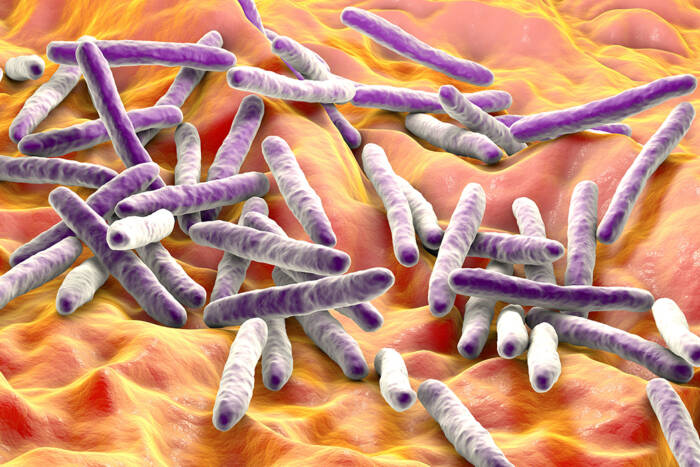David Rockefeller Honored, 20 Doctorates Awarded at Rockefeller University Graduation
The Rockefeller University will dedicate its 37th commencement exercises, Thursday, June 15, 1995, to David Rockefeller for his extraordinary 55 years of service on the institution’s board of trustees, from which he is retiring.
At graduation 20 students from eight countries will receive doctoral degrees. The students include four enrolled in the M.D.-Ph.D. program offered jointly with the university, Cornell University Medical College and Sloan-Kettering Institute.
“After completing independent and original studies here at The Rockefeller University, our students will pursue academic and research careers throughout the world. We look forward to their progress and the future discoveries they will make,” says University President Torsten Wiesel, M.D.
Holding with tradition, The Rockefeller University commencement has no speaker. Rather, faculty mentors introduce each student and describe his or her research after which they recieve their hoods and President Wiesel presents their diplomas. However, unlike past years, the university will not award any honorary degrees during the ceremonies, but will honor David Rockefeller, who received such a degree in 1980. The university also will host a dinner June 15 for Mr. Rockefeller to celebrate his service and his 80th birthday, June 12.
“We are fortunate, also,” says Dr. Wiesel, a Nobel Prize-winning neurobiologist, “that we can recognize and celebrate the dedication and service of David Rockefeller, who loyally supported and guided the university for more than half a century. While federal and commercial funding of biomedical research have waxed and waned, David always championed science and its support.”
Grandson of the university’s founder, John D. Rockefeller, Sr., David Rockefeller joined the board of trustees of the then Rockefeller Institute for Medical Research in 1940. He became chairman of the board in 1950, succeeding his father, John D. Rockefeller, Jr., and served until 1975, a period during which he shepherded the institute’s transformation into a university. Since 1975, David Rockefeller chaired the board’s executive committee and with his retirement, the board has named him a life trustee and honorary chairman.
During Mr. Rockefeller’s tenure, university faculty made many scientific achievements, including the discovery that DNA is the carrier of genetic information and the launching of modern cell biology. Nineteen Nobel laureates have been associated with the university. Recently, the university created four centers to foster collaborations by scientists from complementary fields to pursue investigations of Alzheimer’s Disease, human genetics, neurosciences and the relationships of physics and biology.
The 1995 graduating students and their thesis topics are:
Richard Alan Bernstein, A.B., *
General transcription factor IIA
Heather Anne Cameron, B.S.
Adult neurogenesis in the adult dentategyrus is regulated by adrenal steroids and excitatory input.
Piera Jean Cicchetti, B.A.
3BP-1 binds SH3 domains and functions as a GTPase activating protein for Ras-related G proteins.
Scott Trever Dougan, A.B.
Pattern formation in Drosophila: The role of wingless and other segment polarity genes
Adrian Riu Ferré-D’Amaré, B.S.
DNA recognition by helix-loop-helix proteins
Pierre Gönczy, Diplome de Biologie
Towards a molecular genetic analysis of spermatogenesis in Drosophila
Heidi Greulich, A.B.
A role for Ras in v-crk transformation
Akiko Hata, B.S., M.S.
Functional analysis of csk in signal transduction through the B cell antigen receptor
Erich David Jarvis, B.A.
A window into the molecular biology of song associative learning and memory in songbirds
Susie Jun, B.S.
Target discrimination and structural diversity of Pax proteins
Marcus Kretzschmar, Vordiplom, Diplom
Molecular studies of RNA polymerase II transcription: Regulation by the NF-KB/ IKB system and identification, purification, cloning, and characterization of coactivators
Carlos Lois, M.D.
Proliferation, migration and differentiation of neuronal precursors in the brain of adult mice
Masaki Oishi, B.S. *
Phosphorylation of the Alzheimer amyloid protein precursor
Gregory Pelts, Candidate of Science, M.S.
Large conformal deformations and symmetries of strings
William J. Swiggard, B.S. *
DEC-205, a novel endocytic receptor abundant on mouse dendritic cells and thymicepithelium, has ten C-type lectin domains and mediates antigen presentation.
Fei Wang, B.S.
Motion in a Lorentz lattice gas
Daniel Choe Weinstein, B.S.
Function of the transcription factors HNF-3ß and HNF-4 in early mammalian development
Mark M. Wurfel, B.A. *
Lipopolysaccharide-binding protein and soluble CD14 direct the movement of
lipopolysaccharide in blood by a novel lipid transport mechanism.
Zhong Zhong
STAT: Towards the understanding of signaling specificity in extracellular ligand
induction of gene transcription
Chen Zong, B.S.
Unique signal transduction of eyk: Constitutive stimulation of the JAK-STAT pathway by anoncogenic receptor-like tyrosine kinase
(* Designated student will receive a medical degree from Cornell.)


